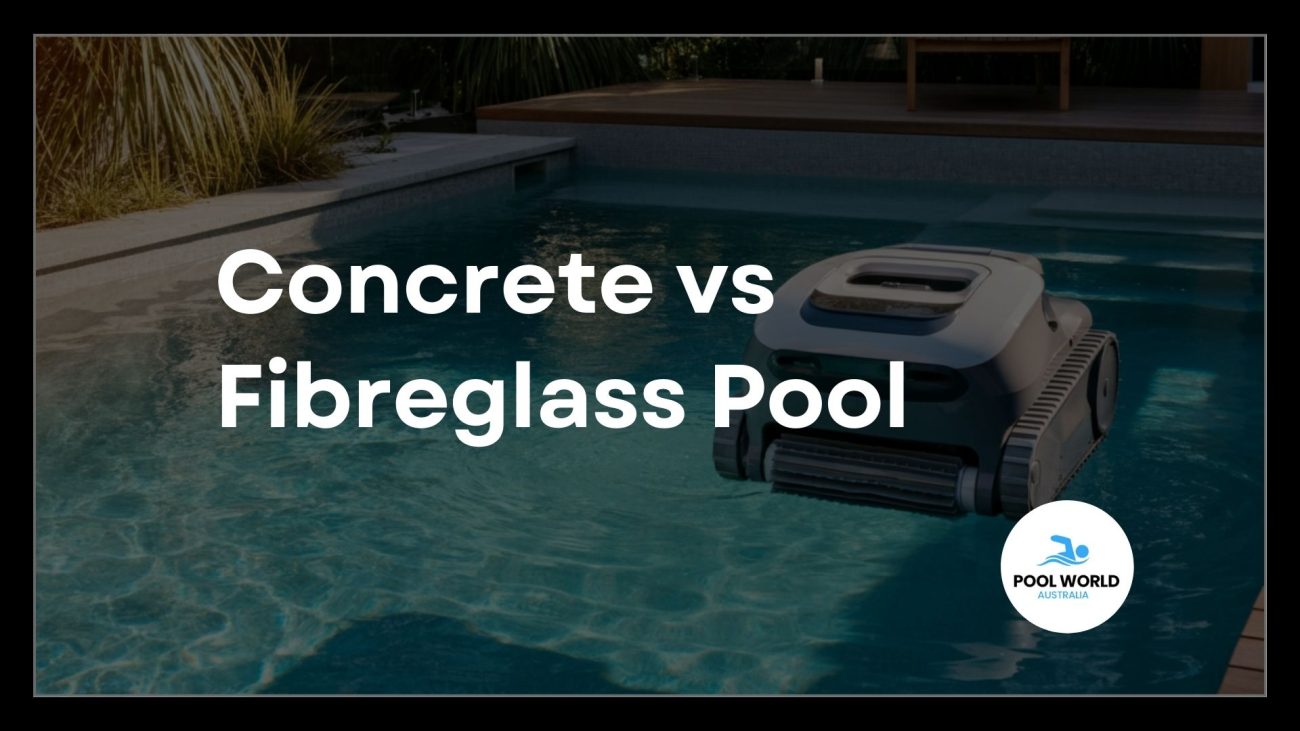Selecting the ideal pool for your Australian house is an exciting task, but there are a lot of factors to take into account. This information will help you decide between fibreglass and concrete pool if you’re having trouble deciding.
Installation Time:
Fibreglass pools are the quicker alternative when it comes to installation. They can usually be operational in a matter of 1-2 weeks. Because the pools are factory-molded and shipped ready to install, this short turnaround time is possible.
Concrete pools, on the other hand, can take three to six months to finish. The longer time frame results from the building and curing procedure that takes place on-site. Fibreglass can be the best option if you want to get into swimming as soon as feasible.
Customization:
Concrete swimming pools offer unparalleled customisation options. Concrete is capable of executing your vision, regardless of whether it involves the integration of aquatic elements, an infinity edge, or a freeform design. This adaptability allows for the creation of unique finishes, forms, and proportions that are in harmony with the immediate environment.
Fibreglass pools are not highly customisable, despite their availability in a variety of pre-molded configurations. Nevertheless, they are available in a diverse array of sizes and shapes to accommodate the most common backyard arrangements.
Durability:
Although there are some differences, both types of pools are made to last. Concrete pools are well known for their durability; with regular upkeep, they can last for 50 years or longer. They are resilient to the severe Australian weather, including intense UV exposure and storms.
Fibreglass swimming pools are also strong, however they might need to be resurfaced every ten to fifteen years. Fibreglass has a smooth, non-porous surface that discourages the growth of algae while simultaneously simplifying and lowering the cost of maintenance.
Maintenance:
If ease of maintenance is a priority, fibreglass pools have the edge. Their smooth surfaces require fewer chemicals and less scrubbing, resulting in lower maintenance costs over time.
Concrete pools, in contrast, are porous and can harbour algae, necessitating more frequent cleaning and chemical treatments.
Cost Comparison:
Initial Costs
Fibreglass pools typically offer a more reasonable initial expenditure for purchasers on a tight budget. Because they are prefabricated, they are more affordable for a larger group of homeowners due to manpower savings. You can use our fibreglass pool cost calculator to get an idea.
Concrete pools are more expensive up front due to their intricate construction and unique design features. There is a cost associated with customising these pools to individual requirements.
Long-term Costs
Fibreglass pools, while requiring less maintenance, may incur additional costs over time due to resurfacing needs. However, their energy-efficient properties can reduce heating and filtration expenses.
Concrete pools, although costlier to maintain, can provide excellent value over their long lifespan if well cared for.
Read our details post on Concrete Pool Cost Australia
Environmental Impact:
It is crucial to think about how your pool choice may affect the environment in today’s eco-aware society. Because fibreglass pools require less chemicals and use less energy, they are sometimes regarded as being more environmentally friendly.
Although concrete pools can also be created with environmentally friendly elements like solar heating systems and energy-efficient pumps, the act of building them typically leaves a larger carbon imprint.
Regulatory Requirements:
When installing a pool in Australia, it’s crucial to adhere to local regulations and safety standards. Both concrete and fibreglass pools must meet specific legal requirements, including fencing and safety barriers, to ensure the safety of all users.
Advantages and Disadvantages of concrete and fibreglass pools:
| Concrete Pool | Fibreglass Pool | |
| Advantages | Highly durable, long lifespan (30-50 years) | Quick installation, often completed within a week |
| Customizable designs, shapes, and finishes | Low maintenance, smooth surface resists algae | |
| Adds significant property value | Generally lower initial cost | |
| Disadvantages | Higher initial cost and longer installation time | Limited design customization, pre-made shapes and sizes |
| Requires periodic resurfacing and more intensive maintenance | Can get warm under direct sunlight | |
| Potential for cracks and algae growth if not properly maintained | May not last as long as concrete pools |
Conclusion
Both fibreglass and concrete pools have advantages, and the ideal option will rely on your particular requirements, financial situation, and property design. If durability and personalisation are important to you, a concrete pool can be the best option. A fibreglass pool, however, can be a better choice if you value ease of installation and minimal upkeep.
Consider contacting a respectable pool installer who can offer advice based on your particular situation to discuss your options and receive a customised consultation. Making the appropriate decision will ensure you have a stunning and useful pool for many years.
Common FAQ’s
What pool is better, fiberglass or concrete?
The choice between fiberglass and concrete pools depends on your specific needs and preferences. Fiberglass pools are known for their quick installation, smooth surfaces, and low maintenance. Concrete pools offer greater design flexibility and durability. Consider factors like budget, desired pool shape, and maintenance before making a decision.
Is fiberglass better than concrete?
Fiberglass pools have certain advantages over concrete, including a quicker installation process and less maintenance due to their non-porous surface, which resists algae growth. However, concrete pools may be better if you prefer a custom shape or additional features like vanishing edges.
What are the benefits of a fiberglass pool?
- Quick installation time
- Smooth, non-abrasive surface
- Lower maintenance costs
- Energy efficiency due to better insulation properties
Are fiberglass pools slippery?
Fiberglass pools have a smooth surface, which some might consider slippery. However, most manufacturers design them with a tex
How long do fiberglass pools last?
Fiberglass pools can last over 25 years with proper maintenance. Their durable construction makes them resistant to cracks and surface degradation. Regular care, including cleaning and balancing chemicals, will help maximize their lifespan.

